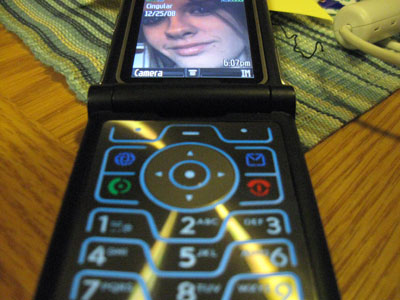All Nonfiction
- Bullying
- Books
- Academic
- Author Interviews
- Celebrity interviews
- College Articles
- College Essays
- Educator of the Year
- Heroes
- Interviews
- Memoir
- Personal Experience
- Sports
- Travel & Culture
All Opinions
- Bullying
- Current Events / Politics
- Discrimination
- Drugs / Alcohol / Smoking
- Entertainment / Celebrities
- Environment
- Love / Relationships
- Movies / Music / TV
- Pop Culture / Trends
- School / College
- Social Issues / Civics
- Spirituality / Religion
- Sports / Hobbies
All Hot Topics
- Bullying
- Community Service
- Environment
- Health
- Letters to the Editor
- Pride & Prejudice
- What Matters
- Back
Summer Guide
- Program Links
- Program Reviews
- Back
College Guide
- College Links
- College Reviews
- College Essays
- College Articles
- Back
The Unfortunate State of Communication
Social media. A ubiquitous and, some argue, necessary part of the teen culture of today. Not only is it a fun and interesting way to keep up with your friends, it lets you do just that -- keep up with your friends, no matter where you are, or what situation you are in. But that’s exactly the problem. The fact that these devices and interactions are with us wherever we go does exactly the opposite of what we think it does -- it tears our real interactions apart.
This is neither a new nor a controversial point of view. In fact, it is one of the most common editorial topics. However, it is significantly more uncommon for a teenager to take a stand against one of their main connections to their social lives and their friends. The fact of the matter is that the gamification of conversations in programs such as Snapchat and Instagram make conversation more of a chore than a meaningful, interesting connection with a person.
Take Snapchat, for example. Snapchat is one of the most popular mobile applications of all time, with over 173 million daily users. Everywhere you go, people are using Snapchat not only to keep in touch with friends and family, but also as a game. One of Snapchat’s main selling points is a feature called “streaks”, wherein a user can start a “streak” with someone else by sending a picture to them, then having them open it and send a picture back. If both people do this every day for several days, a number next to their name will tick up. Once per day.
That’s it.
This is one of the most popular games of our generation. More than Minecraft, more than Mario, Snapchat is revolutionizing with nothing more than a simple number next to people’s names. And these streaks cause people to have meaningful conversations every single day, right? That was the idea, at least. But no. The vast majority of the pictures sent back and forth constituting these multi-month streaks are completely black or meaningless, with no messages sent. So what’s causing this stark difference in what was intended to be caused by these streaks compared to what’s actually happening?
The short answer is the status symbol. Having a four hundred day streak with one of your friends shows to everyone that you really care about keeping this conversation going with that friend. But if anything, your relationship might be getting strained. Forcing a conversation every day gets tiring, to say the least, and if you have nothing to talk about, it only makes real conversations less meaningful.
So what’s the other option? Social media is a crucial part of our society now. We use it to coordinate and let people know things when we can’t see them in real life. Social media is undeniably important to us. It’s not in our best interest to get rid of it. However, I propose getting rid of the overt gamification of our conversations. It makes them less meaningful and takes away from our real, face-to-face conversations.

Similar Articles
JOIN THE DISCUSSION
This article has 0 comments.

In writing this piece for a school assignment, I realized how passionate I am about the relationships that people have with one another and how I feel that social media, if anything, is really tearing us apart. I hope not for you to abandon all social media usage, but to take a second thought about your actions and decide if they are really intentional and thoughtful.